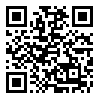Thu, Jan 29, 2026
[Archive]
Volume 2, Issue 1 (MARCH ISSUE 2021)
johepal 2021, 2(1): 131-143 |
Back to browse issues page
Download citation:
BibTeX | RIS | EndNote | Medlars | ProCite | Reference Manager | RefWorks
Send citation to:



BibTeX | RIS | EndNote | Medlars | ProCite | Reference Manager | RefWorks
Send citation to:
Sage R. (2021). Can Philosophy Lead Us Out of the World Calamities? The Role of Higher Education. johepal. 2(1), 131-143. doi:10.52547/johepal.2.1.131
URL: http://johepal.com/article-1-98-en.html
URL: http://johepal.com/article-1-98-en.html
Abstract: (2950 Views)
Philosophy, as the study of knowledge, reality and existence to guide behaviour, emerged in different parts of the world at around the same time. Origins of Buddhism, Chinese, Greek and Indian philosophy are traced back to the 300 years beginning in the 8th century BC. These ideas shape the ways people live and think about life’s big issues. Most people do not consciously articulate their philosophical assumptions and probably are unaware of them. However, conventions about the nature of self, ethics, knowledge and life goals are deeply embedded in our cultures to frame thinking and action. How does philosophy contribute to a better world? It is based on careful observation and critical analysis of ideas, concepts and statements, regarding rationality, equality, relativism, social construction, moral truth, justice and religious belief. Questions are epistemological- how secure is social scientific knowledge? Methodological- what ways suit the study of societies? Explanatory- what makes effective social account? & ontological- what assumptions are needed to research the social world? Normative social philosophy is the theory of justice, well-being and liberalism for organized thinking about values, ethics and social arrangements. Therefore, philosophy helps to understand issues that need solving for human progress and Higher Education has an important role here in promoting these powerful ideas to bring better acceptance of diversity.
Type of Study: Research |
Subject:
Special
Received: 2020/11/19 | Accepted: 2021/03/17 | Published: 2021/04/10
Received: 2020/11/19 | Accepted: 2021/03/17 | Published: 2021/04/10
References
1. Ames, R. T. (2011). Confucian Role Ethics: A Vocabulary. Ch’ien Mu Lecture Series. Hong Kong: The Chinese University Press.
2. Baird, C. J. (1990). The case against moral pluralism. Environmental Ethics, 12(2), 99-124. [DOI]
3. Bentham, J. (1843) Anarchical Fallacies. In the work of Jeremy Bentham: Published by his Executor, John Bowring. Vol 2: Edinburgh: William Tait.
4. Conan Doyle, A. (1887). A Study in Scarlet. London: Ward Lock & Co.
5. DesJardins, J. R. (2006). Environmental Ethics: An Introduction to Environmental Philosophy. USA: Thomson Wadsworth.
6. Olchawski, J. (2016). Sex Equality: State of the Nation 2016. London: Fawcett Society. [Article]
7. Frankopan, P. (2015). The Silk Roads: A New History of the World. London: Bloomsbury Publishing.
8. Furedi, F. (2020). Why Borders Matter: Why Humanity Must Relearn the Art of Drawing Boundaries. New York: Routledge.
9. Furedi, F. (2021). Democracy Under Siege. Alresford: Zero Books John Hunt Publishing.
10. Godley, A. D. (1920). Herodotus. Loeb Classical Library, London: W. Heinemann.
11. Kasulis, T. P. (2018). Engaging Japanese Philosophy: A Short History. USA: University of Hawai’i Press.
12. Rawls, J. (1993, 2005). Political Liberalism. New York: Columbia University Press.
13. Rawls, J. (1999). The Law of Peoples. Cambridge, MA: Harvard University Press.
14. Rawls, J. (1971). A Theory of Justice. Cambridge, MA: Harvard University Press.
15. Losonsky, M. (2006) Linguistic Turns in Modern Philosophy. USA: Cambridge University Press.
16. Shermer, M. (2016). The Moral Arc: How Science and Reason Lead Humanity toward Truth, Justice and Freedom. USA: Henry Holt.
17. Sage, R. (2000). Class Talk: Successful Learning through Effective Communication. England: Network Educational Press Ltd.
18. Sage, R. (2008). What Cuba has to Teach us about Education. Report for the British Council, Havana, Cuba. Leicester University Publications.
19. Sage, R. (2017). (Ed.). Paradoxes in Education: Learning in a Plural Society. The Netherlands: Sense Publishers.
20. Sage, R. (2020). Speechless: Understanding Education. London: The University of Buckingham Press.
21. Sage, R. & Matteucci, R. (In Press). How World Events are Changing Education. Rotterdam: Brill Publication.
22. Sage, R., Rogers, J. & Cwenar, S. (2007). Phase 2: The Dialogue, Innovation & Learning Project, Leicester: University of Leicester Publication.
23. Shukla, N. (2016). (Ed.). The Good Immigrant. London: Unbound.
Send email to the article author
| Rights and permissions | |
 |
This work is licensed under a Creative Commons Attribution-NonCommercial 4.0 International License. |




